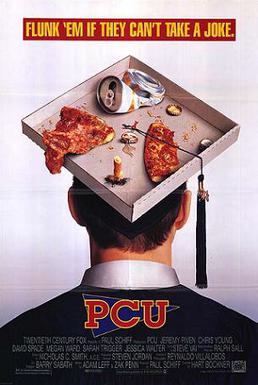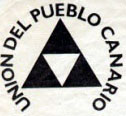Related Research Articles

The 1936 United States presidential election was the 38th quadrennial presidential election, held on Tuesday, November 3, 1936. In the midst of the Great Depression, incumbent Democratic President Franklin D. Roosevelt defeated Republican governor Alf Landon of Kansas in a landslide victory. Roosevelt won the highest share of the popular vote (60.8%) and the electoral vote since the largely uncontested 1820 election. The sweeping victory consolidated the New Deal Coalition in control of the Fifth Party System.
The New Deal coalition was an American political coalition that supported the Democratic Party beginning in 1932. The coalition is named after President Franklin D. Roosevelt's New Deal programs, and the follow-up Democratic presidents. It was composed of voting blocs who supported them. The coalition included labor unions, blue-collar workers, big city machines, racial and religious minorities, white Southerners, and intellectuals. Besides voters the coalition included powerful interest groups: Democratic Party organizations in most states, city machines, labor unions, some third parties, universities, and foundations. It was largely opposed by the Republican Party, the business community, and rich Protestants. In creating his coalition, Roosevelt was at first eager to include liberal Republicans and some radical third parties, even if it meant downplaying the "Democratic" name. By the 1940s, the Republican and third-party allies had mostly been defeated. In 1948, the Democratic Party stood alone and survived the splits that created two splinter parties.

The Minnesota Farmer–Labor Party (FLP) was a left-wing American political party in Minnesota between 1918 and 1944. The FLP largely dominated Minnesota politics during the Great Depression. It was one of the most successful statewide third party movements in United States history and the longest-lasting affiliate of the national Farmer–Labor movement. At its height in the 1920s and 1930s, FLP members included three Minnesota governors, four United States senators, eight United States representatives and a majority in the Minnesota legislature.

The Presbyterian Church in the United States was a Protestant denomination in the Southern and border states of the United States that existed from 1861 to 1983. That year, it merged with the United Presbyterian Church in the United States of America (UPCUSA) to form the Presbyterian Church (USA).
PCU can refer to:

PCU is a 1994 American comedy film written by Adam Leff and Zak Penn and directed by Hart Bochner about college life at the fictional Port Chester University, and represents "an exaggerated view of contemporary college life". The film is based on the experiences of Leff and Penn at Eclectic Society at Wesleyan University in Middletown, Connecticut.

The Philippine Christian University (PCU) is a private, Protestant coeducational basic and higher education institution located in Ermita, Manila, Philippines. It was founded in 1946 through the initiatives of the laymen of the Evangelical Association of the Philippines. Originally named as Manila Union University, it was renamed as Philippine Christian College (PCC). In 1976, the PCC acquired university status.
Communist Unification Party was a political party in Spain. Formed in 1976 through the unification of the two groups Lucha de Clases and Larga Marcha hacia la Revolución Socialista. Later the same year the Communist Organization Workers Information Organización Comunista Información Obrera joined the PCU.

The Communist Party of Uruguay is a communist party in Uruguay, founded on 21 September 1920 by members of the Socialist Party who had endorsed the October Revolution and the Bolsheviks.

The PCU Dolphins are the senior athletic teams that represent Philippine Christian University. They are currently playing at the National Athletic Association of Schools, Colleges and Universities (NAASCU), after spending a leave of absence from the National Collegiate Athletic Association (Philippines) basketball.

Legislative elections were held in Spain on 16 February 1936. At stake were all 473 seats in the unicameral Cortes Generales. The winners of the 1936 elections were the Popular Front, a left-wing coalition of the Spanish Socialist Workers' Party (PSOE), Republican Left (Spain) (IR), Esquerra Republicana de Catalunya (ERC), Republican Union (UR), Communist Party of Spain (PCE), Acció Catalana (AC), and other parties. Their coalition commanded a narrow lead over the divided opposition in terms of the popular vote, but a significant lead over the main opposition party, Spanish Confederation of the Autonomous Right (CEDA), in terms of seats. The election had been prompted by a collapse of a government led by Alejandro Lerroux, and his Radical Republican Party. Manuel Azaña would replace Manuel Portela Valladares, caretaker, as prime minister.
The Autonomous Provincial Concentration was a Panamanian small regionalist conservative political party.

Tibaldo Rodney Arismendi Carrasco was a Uruguayan politician and political writer who was born in Río Branco, Uruguay and died in Montevideo.

Presbyterianism has had a presence in the United States since colonial times and has exerted an important influence over broader American religion and culture.

The Canarian People's Union was a left-wing nationalist political coalition operating in the Canary Islands. The party aim was self-determination for the islands and socialism. It was a coalition between various political parties and groups, with a communist, pro-independence or nationalist ideology.
The Canarian United People was a left-wing nationalist political coalition operating in the Canary Islands. The party aim was self-determination for the islands and socialism. It was a coalition between various political parties and groups, with a communist, pro-independence or nationalist ideology. The coalition received the support of the MPAIAC.

The 1936 United States presidential election in Alabama took place on November 3, 1936, as part of the nationwide presidential election. Voters chose eleven representatives, or electors to the Electoral College, who voted for president and vice president. In Alabama, voters voted for electors individually instead of as a slate, as in the other states.

The 1936 United States presidential election in North Carolina took place on November 3, 1936, as part of the 1936 United States presidential election. North Carolina voters chose 13 representatives, or electors, to the Electoral College, who voted for president and vice president.

The 1936 United States presidential election in Louisiana took place on November 3, 1936, as part of the 1936 United States presidential election. Louisiana voters chose ten representatives, or electors, to the Electoral College, who voted for president and vice president.